What’s the difference between “breath” vs. “breathe?” The “e” letter at the end of the sentence can change the meaning of the words entirely. For example, “taking a deep breath” or “taking a deep breathe.”
Learn the difference between “breath” and “breathe” in this short guide…
What is the definition of the word “breath?”
Merriam-Webster defines “breath” as “ability to breathe.”
The word “breath” is defined as the air that is exhaled through the nose and mouth. It is also used to describe the act of inhaling and exhaling. Additionally, breath can be used as a metaphor for life itself. For example, someone might say, “he took his last breath.” This phrase typically signifies that the person has died.
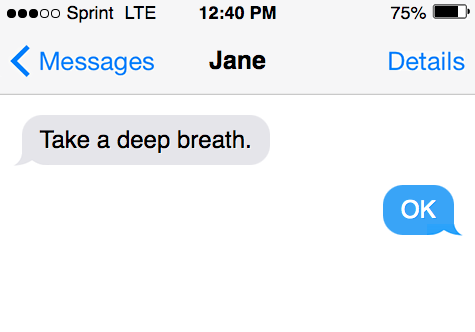
For example, someone could say:
- I have bad breath.
- The person took their last breath.
- A frightened child took a very deep breath after the situation ended.
- Take long and deep breaths after running long distances.
What is the definition of the word “breathe?”
According to Merriam-Webster, the word “breathe” is “to inhale and exhale freely.”
Breathe is a verb that indicates a state of being. For example, when you “breathe,” you are both inhaling and exhaling. Instead, to take more than one breath. And to breathe easily.
The word “breathe” is defined as inhaling and exhaling. Additionally, it can be used to describe the air that is exhaled through the nose and mouth. For example, someone might say, “I need to take a deep breath.” This phrase typically signifies the person is trying to calm down or relax.
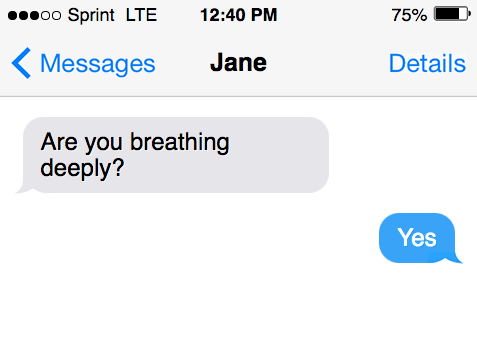
For example, someone could say:
- I can’t breathe.
- The person is struggling to breathe.
- Breathe in through your nose and out through your mouth.
- I’m going outside to breathe in the fresh air.
- I have asthma, and it is difficult for me to breathe.
How is the word “breath” pronounced?
The word “breath” is pronounced like “breth.” The word breath, in the noun form, without the “e” letter at the end, has a “short e” sound. For example, the words “get,” “set,” or “instead.”
The word “breath” rhymes with death, Seth, and Beth.
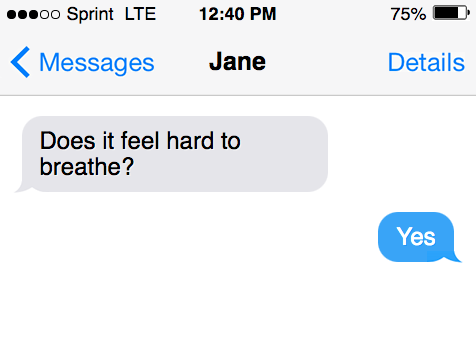
Remember, the noun “breath,” pronounced /BRETH/ has no “e” letter at the end. Although the verb “breathe,” pronounced /BREETHE/ is spelled with an “e” at the end, though pronounced the same.
How is the word “breathe” pronounced?
The word “breathe” is pronounced like “breeth.” The word breath, in the verb form, with the “e” letter at the end, has a long “e” sound. For example, the words “meet,” “teeth,” or “seethe.”
Difference between “breath” and “breathe”
To “breathe” is to both inhale and exhale. For example, “breathe deeply” infers both inhaling and exhaling of actual air. Meanwhile, a “breath” is simply exhaling air. Words “breath” and “breathe” sound very similar and are commonly confused words.
Remember “breathe” rhymes with “seethe” and “breath” rhymes with “Beth.” They are pronounced differently.
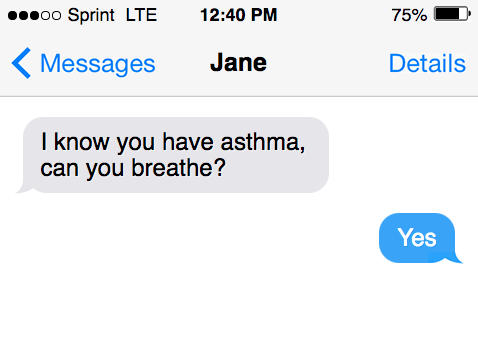
Examples of the differences:
- “I wanted to breathe new life into the fence.”
- “In one breath I was able to get enough oxygen to continue swimming.”
- “Don’t hold your breath waiting for the person to show up. They are always late.”
- “I wanted to hold my breath for some time. In that amount of time, I stoped breathing air.”
- “I waited with bated breath.”
To “breathe” is to repeat the inhaling and exhaling of air (the act of breathing). And “breath” refers to the act of a single event. For example, “Take a breath of fresh air. Get that carbon dioxide out of your lungs.”
The singular act to exhale air and the continuous act to “breathe.”
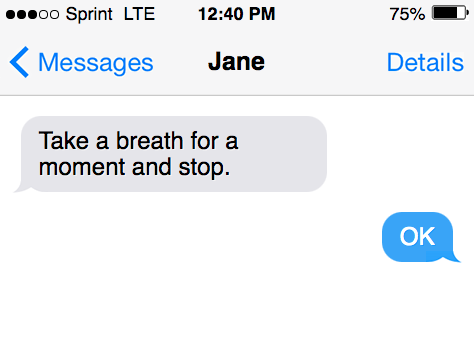
What is an idiom or phrase that includes the word “breath?”
“Breathe a sigh of relief” is an idiom that includes the word “breath.” This phrase is used when someone is relieved or happy about something. For example, someone might say, “I’m so glad that’s over! I can finally breathe a sigh of relief.”
What is the etymology of the word “breath?”
The word “breath” comes from the Old English word “bræth,” which means “breath, air, vapor.” This word is derived from the Proto-Germanic root “breuthan,” which also means “to breathe.”
What is the etymology of the word “breathe?”
“Breathe” holds the same etymology since it “breath” and “breathe” are various forms of the same base form, “breath.”
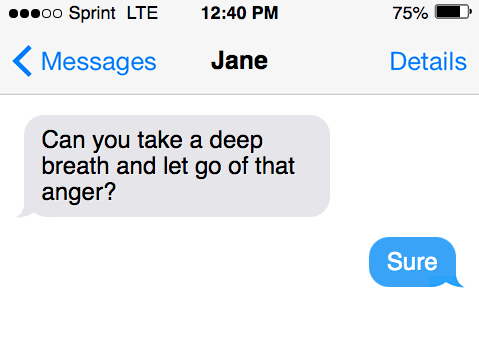
Different forms of “breath” and “breathe”
Both need to indicate that someone has taken more than a single breath. What needs to change when looking at the verb tense of breath and breathe?
What is the singular noun form of the word “breath?”
The singular noun form of the word “breath” is “breath.” For example, “I only have one breath left.”
What is the plural noun form of the word “breath?”
The plural noun form of the word “breath” is “breaths.” For example, “I need to take a few deep breaths.”
What is the present tense conjugation of the word “breathe?”
The present tense conjugation of the word “breathe” is “breathes.” For example, ” she always breathes through her mouth.”
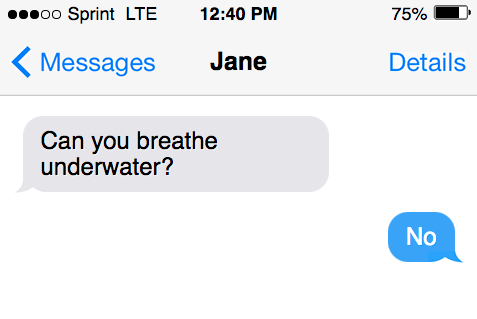
What is the past tense conjugation of the word “breath?”
The past tense conjugation of the word “breath” is “breathed.” For example, “I breathed a sigh of relief when the test was over.”
What is the future tense conjugation of the word “breath?”
The future tense conjugation of the word “breath” is “will breathe.” For example, “I will take a deep breath before I go on stage.”
What is a synonym for the word “breath?”
A synonym for the word “breath” is “respiration.” For example, “Inhaling and exhaling is vital for respiration.”
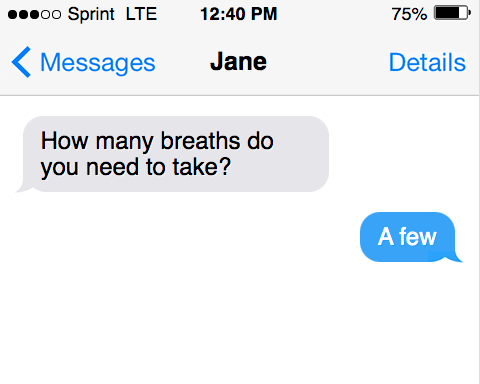
What is an antonym for the word “breath?”
An antonym for the word “breath” is “suffocation.” For example, “He was panicking because he couldn’t breathe and was slowly suffocating.”
Common phrases that use the word “breath”
Here are typical idioms and phrases that use the word “breath”:
- “Take a deep breath.” (Used to describe someone needing to take a short pause)
- “Get a breath of fresh air.” (Used to describe someone who needs to remove themselves)
- “In the same breath.” (Used as part of a sentence to describe something being connected)
Common “breathe” idioms:
- “Breathe new life into it.” (Used to describe something that needs replacement)
- “Breathe a sigh of relief.” (Used to describe when something no longer has stress)
Remember, “breath” is a noun and “breathe” is a verb. These words can be found in many idioms in the English language. They have related meanings, with only the occurrence or repetitiveness of them differentiating the definitions. For example, “taking three breaths,” and “breathe deeply for extended periods of time.”
How to choose the right word, “breath” or “breathe”
The word “breath” is a noun that refers to the air that is exhaled through the nose and mouth. The word “breathe” is a verb that means to inhale and exhale.
When choosing between the two words, consider whether you need a noun or a verb.
For example, if you are talking about the act of inhaling and exhaling, you would use the word “breathe.” If you are talking about the air itself, you would use the word “breath.”
When to use the word “breath”
Use the word “breath” when you are talking about the air that is exhaled. For example, “I need to take a deep breath.”
When to use the word “breathe”
Use the word “breathe” when you are talking about the act of inhaling and exhaling. For example, “Make sure to breathe through your nose and not your mouth.”
Sources
- Breathe Definition & Meaning – Merriam-Webster
- Breathe Definition & Meaning – Merriam-Webster
- bræþ – Wiktionary
- Plural Nouns Forms – ThoughtCo
- Present Tense in Spanish – Spanish Verb Conjugation Rules
- Future tense – French and Francophone Studies
- English Idioms | Lists of Idioms with Definitions and Examples
Inside this article
Fact checked:
Content is rigorously reviewed by a team of qualified and experienced fact checkers. Fact checkers review articles for factual accuracy, relevance, and timeliness. Learn more.
Core lessons
Glossary
- Abstract Noun
- Accusative Case
- Anecdote
- Antonym
- Active Sentence
- Adverb
- Adjective
- Allegory
- Alliteration
- Adjective Clause
- Adjective Phrase
- Ampersand
- Anastrophe
- Adverbial Clause
- Appositive Phrase
- Clause
- Compound Adjective
- Complex Sentence
- Compound Words
- Compound Predicate
- Common Noun
- Comparative Adjective
- Comparative and Superlative
- Compound Noun
- Compound Subject
- Compound Sentence
- Copular Verb
- Collective Noun
- Colloquialism
- Conciseness
- Consonance
- Conditional
- Concrete Noun
- Conjunction
- Conjugation
- Conditional Sentence
- Comma Splice
- Correlative Conjunction
- Coordinating Conjunction
- Coordinate Adjective
- Cumulative Adjective
- Dative Case
- Determiner
- Declarative Sentence
- Declarative Statement
- Direct Object Pronoun
- Direct Object
- Diction
- Diphthong
- Dangling Modifier
- Demonstrative Pronoun
- Demonstrative Adjective
- Direct Characterization
- Definite Article
- Doublespeak
- False Dilemma Fallacy
- Future Perfect Progressive
- Future Simple
- Future Perfect Continuous
- Future Perfect
- First Conditional
- Irregular Adjective
- Irregular Verb
- Imperative Sentence
- Indefinite Article
- Intransitive Verb
- Introductory Phrase
- Indefinite Pronoun
- Indirect Characterization
- Interrogative Sentence
- Intensive Pronoun
- Inanimate Object
- Indefinite Tense
- Infinitive Phrase
- Interjection
- Intensifier
- Infinitive
- Indicative Mood
- Participle
- Parallelism
- Prepositional Phrase
- Past Simple Tense
- Past Continuous Tense
- Past Perfect Tense
- Past Progressive Tense
- Present Simple Tense
- Present Perfect Tense
- Personal Pronoun
- Personification
- Persuasive Writing
- Parallel Structure
- Phrasal Verb
- Predicate Adjective
- Predicate Nominative
- Phonetic Language
- Plural Noun
- Punctuation
- Punctuation Marks
- Preposition
- Preposition of Place
- Parts of Speech
- Possessive Adjective
- Possessive Determiner
- Possessive Case
- Possessive Noun
- Proper Adjective
- Proper Noun
- Present Participle
- Prefix
- Predicate



